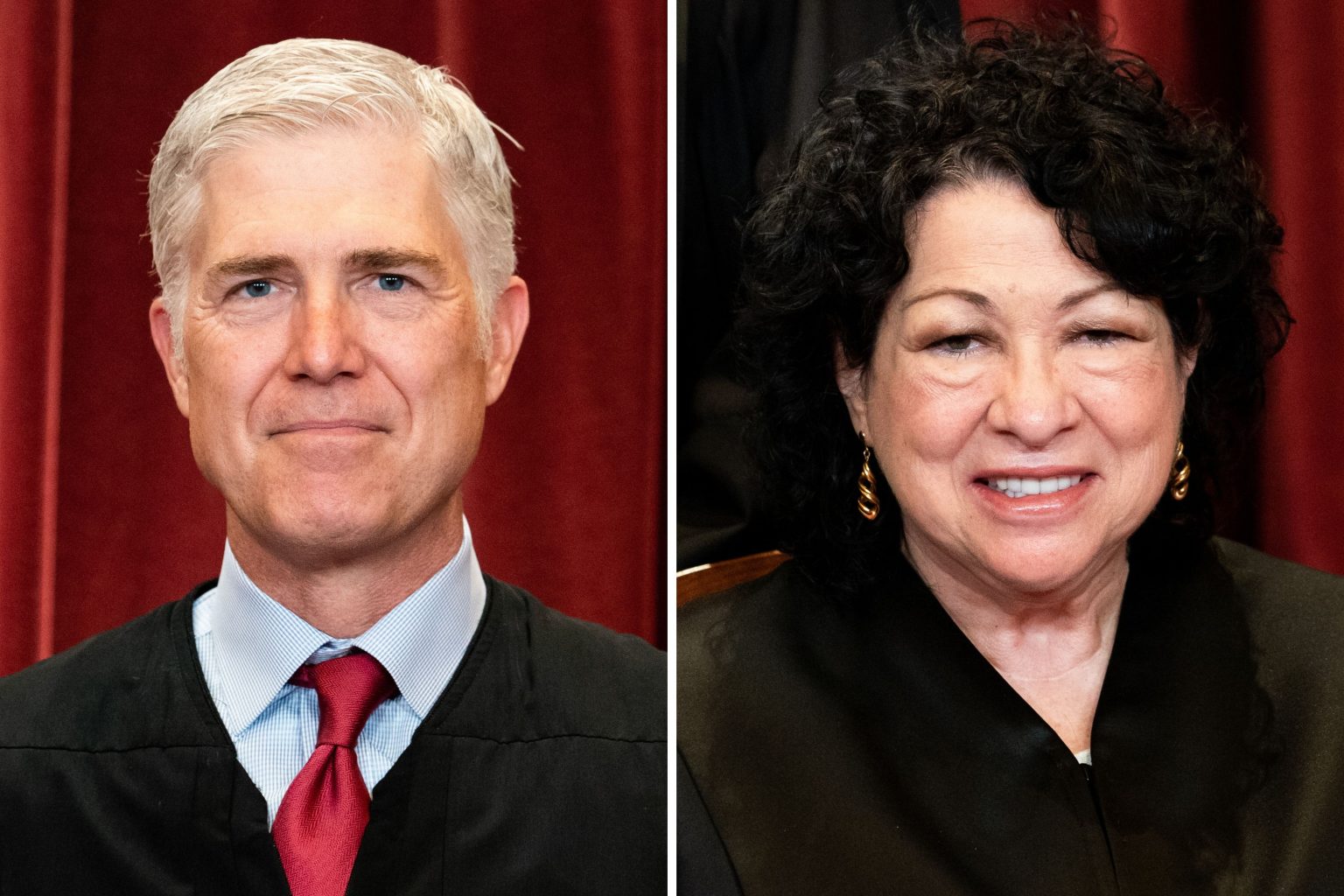Summarize this content to 2000 words in 6 paragraphs Justices Neil Gorsuch and Sonia Sotomayor have called for further review of a key constitutional question concerning the Takings Clause after the Supreme Court declined to hear a case involving Vicki Baker, a Texas homeowner.Baker’s home was severely damaged during a 2020 police standoff, raising critical questions about whether the government owes compensation when private property is destroyed for public safety purposes.The incident occurred during a police operation in McKinney, Texas, where officers used tear gas, explosives, and a vehicle to apprehend fugitive Wesley Little, who was holding a teenager hostage.Little was later found dead by suicide, but Baker’s home and belongings sustained $50,000 in damage. Her insurance company refused to pay for the damage, and the city denied her request for compensation.Arguing her Fifth Amendment rights under the Takings Clause—which prohibits the government from taking private property for public use without just compensation—Baker filed a lawsuit with the help of the Institute for Justice, a nonprofit, public interest law firm.While a district court ruled in her favor, the Fifth Circuit overturned the decision, finding that police actions during emergencies are exempt from compensation requirements.Newsweek reached out to attorneys from the Institute for Justice for comment on Monday.In a statement accompanying the Court’s decision not to hear the case, Justices Gorsuch and Sotomayor underscored the unresolved legal question: “Does the Takings Clause apply when the government destroys private property for public safety?”The statement of Sotomayor notes: “As the District Court explained: ‘The explosions left Baker’s dog permanently blind and deaf. The toxic gas that permeated the House required the services of a HAZMAT remediation team’.””‘Essentially all of the personal property in the House was destroyed, including an antique doll collection left to Baker by her mother,'” the statement adds.To support their concerns, the justices cited earlier rulings, such as Bowditch v. Boston (1879) and United States v. Caltex (1952), which established precedents for uncompensated destruction of property under extreme necessity, such as preventing a fire’s spread or denying strategic resources to an enemy during wartime.However, Sotomayor argued that Baker’s situation differs. “These cases do not resolve Baker’s claim, however, because the destruction of her property was necessary, but not inevitable,” she noted.Gorsuch and Sotomayor urged lower courts to delve deeper into this issue, emphasizing the need to clarify whether exceptions to the Takings Clause exist and, if so, their boundaries.
Justices Neil Gorsuch (left) and Sonia Sotomayor (right) have called for further exploration of a key constitutional question involving the Takings Clause after the Supreme Court declined to hear a case brought by a Texas…
Justices Neil Gorsuch (left) and Sonia Sotomayor (right) have called for further exploration of a key constitutional question involving the Takings Clause after the Supreme Court declined to hear a case brought by a Texas homeowner, Vicki Baker, whose property was severely damaged during a police standoff in 2020.
More
Getty Images
Legal experts have noted the potential for varying interpretations of the Takings Clause to affect law enforcement and emergency management practices nationwide. As Sotomayor pointed out, under the Fifth Circuit’s ruling, individuals like Baker might unfairly bear the financial burden of actions taken for the collective good.Baker continues to advocate for her claim, and her case has drawn attention to the ongoing tension between public safety and constitutional protections. The justices’ statement indicates that the Supreme Court may revisit the issue if similar cases arise in the future.


